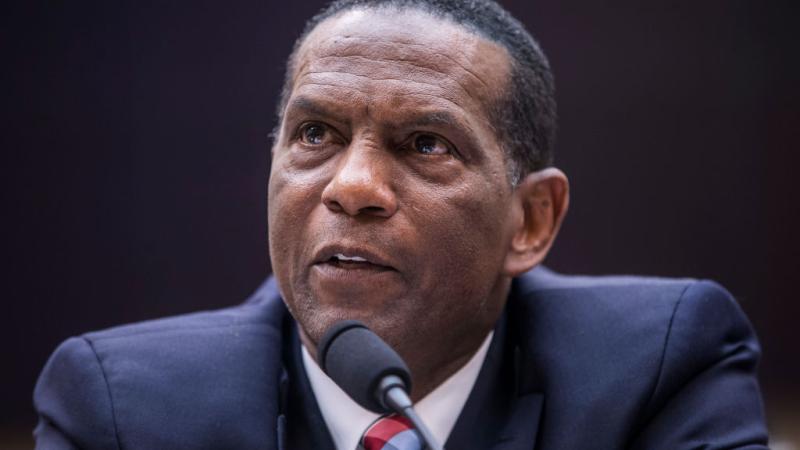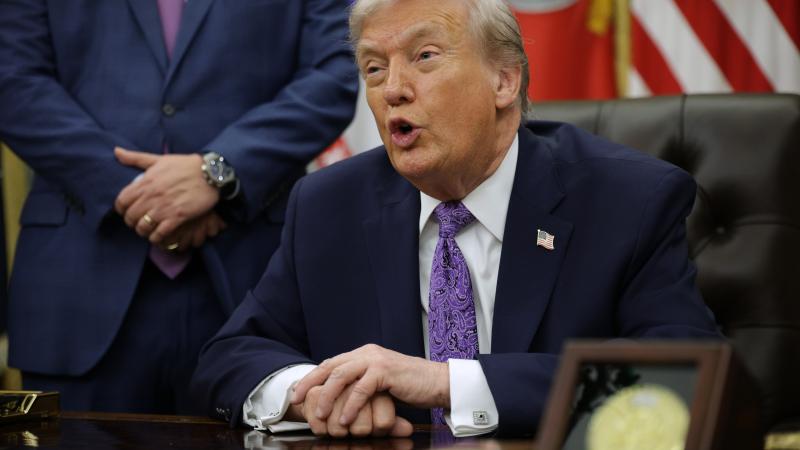Lawmakers say a ‘select committee’ on impeachment is a workable option and up to McCarthy
A "select committee" is not constitutionally required, but GOP lawmakers defer to McCarthy. "I look forward to seeing what he decides but he can pick either one of them and it would I'm sure it work" said Darryl Issa.
Rep. Darrell Issa (R-Ca.) told Just the News that forming a select committee on impeachment of President Biden or proceeding directly to an impeachment inquiry are both viable options but the ultimate decision will be made by House Speaker Kevin McCarthy.
Issa, a member of the House Judiciary Committee, was asked if he prefers a select committee as opposed to an impeachment inquiry overseen by the House Judiciary Committee.
"I trust the speaker to figure out the best team to put together for that inquiry. He can always go to the Judiciary Committee, which is heavy on the impeachment side, but the reality is, the January 6 [select] committee, had it been bipartisan, might well have been as good of a format," he said during an interview on Capitol Hill.
"And the speaker has made it clear that he's returned to regular order. He will do a bipartisan investigation, if anything. So I look forward to seeing what he decides but he can pick either one of them and it would I'm sure it work," he added.
According to the Library of Congress, former President Richard Nixon was "investigated by the Senate Select Committee on Presidential Campaign Activities and by two special prosecutors for activities relating to the obstruction of the investigation of the burglary at the Democratic National Committee headquarters," known as the Watergate scandal. Those investigations preceded Nixon's resignation, but the resignation mooted an actual impeachment.
Unlike President Clinton, Nixon chose resignation rather than facing an impeachment, saying he decided he must resign when he concluded that he no longer had "a strong enough political base in the Congress" to make it possible for him to complete his term of office."
In 1998, the House Judiciary Committee approved three articles of impeachment against Clinton, alleging that President Clinton committed perjury and obstruction of justice. Later that year, after more than 13 hours of debate over two days, the House of Representatives approved two articles of impeachment, charging Clinton with lying under oath to a federal grand jury and obstructing justice. A third charge was added later.
In 1998, Clinton became the second U.S. president to be impeached in the House of Representatives. The U.S. Senate subsequently acquitted Clinton on charges of perjury and obstruction of justice. He vowed to fill out his term and in February of 1999, President Clinton was acquitted of the two articles of impeachment. Rejecting the first charge of perjury, 10 Republicans and all 45 Democrats voted "not guilty." On the charge of obstruction of justice, the Senate was split 50-50.
Years later, Clinton called his impeachment "illegitimate" in an interview with NPR's Juan Williams.
A historical analysis published by the National Legal Foundation found "twenty-five cases in which Select Committees (or Special Committees) have been used in impeachment investigations or were proposed to be used."
Rep. Cory Mills (R-Fla.), a member of the House Armed Services and Foreign Affairs committees, was asked if he thinks a select committee should be formed on impeachment.
"I haven't heard about a select committee yet so I'll have to get the details of how that would work out. Again, it's like anything, the devil is in the details. What I want to see, though, and I've made this abundantly clear, is accountability and transparency," he said.
Mills was also asked if he would want to see the House vote to open an impeachment inquiry. The U.S. Constitution does not require any preliminary investigation or "select committees."
"He needs to go ahead and just move forward and get this done," Mills added. "I'm okay to whatever actually starts getting answers and accountability to the American people."
McCarthy’s office was not available for comment before publication.














